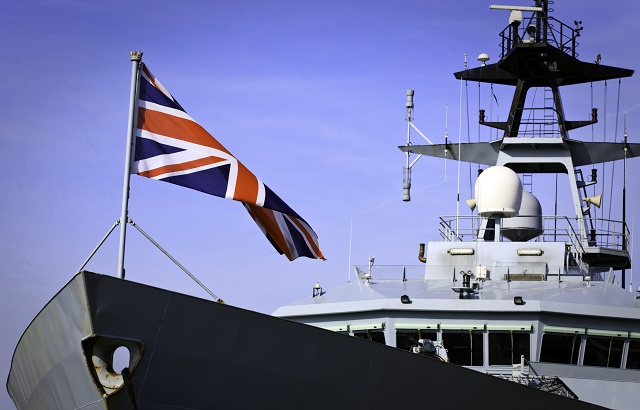The Middle East is, sadly, no stranger to conflict, with Iran the country currently most out of favour.
The seizure of UK-flagged oil tanker Stena Impero in July saw Royal Navy destroyer HMS Duncan join her sister ship HMS Montrose in the Gulf to protect vessels in the Strait of Hormuz.
They form part of a US-led effort “to uphold freedom of navigation in the region”, said recently appointed UK foreign secretary Dominic Raab.
Tensions erupted between Iran and the US in 2018 after president Donald Trump withdrew America from the 2015 nuclear deal.
Diplomatic channels have so far failed to solve the problem, with financial sanctions imposed on Iran’s supreme leader Ayatollah Khamenei and foreign minister Mohammad Javad Zarif by the US last month.
According to media organisation Al Jazeera, Iran has been stepping up its defence capabilities amid heightened tensions in the region and threats from the US and its Middle Eastern allies, including Israel and Saudi Arabia.
With bated breath
So, what does all this mean for financial advisers and their clients?
“As far as political ‘fear’ is concerned, the region has seen it all before,” Sean Kelleher, chief executive of Dubai-based advisory firm Mondial, told International Adviser.

“Having been through two Gulf Wars, I recall the first one as being a serious concern for residents largely because the flow of information and censorship allowed rumours and messages to be as strong as fact.”
That was less the case during the second Gulf War.
“With current tensions, and while the status quo remains ‘as is’ as far as the balance of power is concerned, I don’t see residents panicking.”
As a firm, Mondial’s offering mainly points to jurisdictions outside of the region; such as the UK, US, Australia, Europe and other financial centres, Kelleher said.
This is not a reflection of the firm’s view of the local political climate, it is more to do with those centres having “well-established regulation and legal systems which are well understood”.
“Therefore, any specific dangers offered by regional political tensions are, frankly, irrelevant to the vast weight of our advice.”
The underlying economy, however, is one area “where we do see drama and turbulence”, he added.
“Oil isn’t what it used to be, as an economic driver. Things are changing and economies are restructuring.”
He pointed to the recent decision in Saudi Arabia to allow women to drive.
“The turbulence caused by necessary economic change is real. We see short-term liquidity issues because of the need for fundamental economic change.
“But that isn’t anything to fear in the medium term.”
Top tip
“The best advice we can give our clients is ‘you only lose by selling’,” Kelleher added.
“Selling because of a fear that asset prices are turbulent because of regional political tensions would be an extreme over-reaction, especially if assets are held in jurisdictions outside the local tension arena.
“Regional and global economic fears are an entirely different matter. Again, you only lose by selling. The answer to economic turbulence should be inside your investment strategy.”
Stick to the basics

Investors Trust’s head of distribution Emea, Phil Story, agrees that “political tensions have definitely ramped up in the last few months, with the issues in the Strait of Hormuz”.
“We obviously reflect on these things during our board and risk committee meetings.”
But it is not deterring the firm from its ambitions for the region, with Investors Trust set to move into a larger office space in the Dubai International Financial Centre (DIFC).
For advisers, the company always recommends they focus on ensuring that they have the basics of a good financial plan in place, Story told IA.
“So, having enough cash reserve held locally and also in an offshore account to accommodate any short-term impacts, whether this be from a job change, relocation, political tensions etc.”
Also, ensure that all protection needs are adequately covered.
“Most importantly, have a strong plan to achieve the medium-to-long term goals. If this planning is done well, then the impacts of any tensions should not be a concern.”
Endless questions
“It is always difficult to plan for the ‘what ifs’,” Story said.
“There are so many, that you could go around and around and never do anything. Whether this is tensions in the Gulf, Brexit or something else.
“It is best for a client to work with a qualified adviser who can guide them in creating a strong financial plan that caters for all their future goals,” he added.
Advice with which Derek Gemmell, recently appointed head of international sales at Utmost Wealth Solutions, agrees.
“If clients are worried about potential market volatility, it is a good time for advisers to schedule a meeting to discuss the situation and their portfolio.
“In such circumstances, the role of the adviser is to coach and educate their client so that they understand the various scenarios and options for future investment,” he added.








